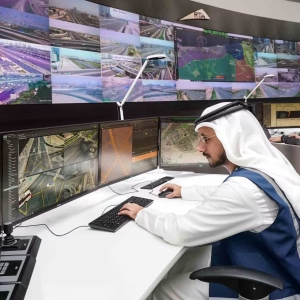A Transformative Step for Dubai’s Business Ecosystem
Dubai free zone businesses are entering a new chapter as the government launches a special permit allowing over 10,000 companies to trade directly within mainland markets. This strategic move aims to simplify business operations, boost investor confidence, and strengthen Dubai’s reputation as a leading global trade hub.
For years, businesses in free zones have operated under limited access rules, often requiring local distributors or agents to trade within the mainland. The new permit changes that landscape completely, creating a bridge between two major economic zones and expanding opportunities for thousands of entrepreneurs.
Bridging Free Zones and Mainland for Seamless Trade
Dubai’s economy thrives on its flexible regulatory framework and investor-friendly environment. The new permit enhances this reputation by breaking down barriers that once separated the free zone and mainland ecosystems. It allows businesses registered in various free zones to offer products and services directly to the mainland market without complex restructuring or additional licensing requirements.

This decision is expected to make trade more efficient, reduce costs for businesses, and create new partnerships between free zone and mainland entities. For many companies, it opens a pathway to reach new customer segments and expand revenue streams within the UAE’s domestic market.
Empowering Over 10,000 Businesses Across Dubai’s Free Zones
Dubai is home to more than 30 specialized free zones, housing over 10,000 companies from diverse industries such as technology, finance, logistics, healthcare, and media. The new permit directly impacts this wide network, allowing these companies to explore domestic trade and service opportunities more freely.

This move aligns with Dubai’s Economic Agenda D33, which aims to double the size of the emirate’s economy over the next decade. By integrating free zone firms into the broader marketplace, Dubai is strengthening its position as one of the world’s most competitive business destinations.

Simplified Regulatory Procedures and Streamlined Access
One of the most attractive features of this new initiative is its simplicity. Businesses will not be required to establish a separate mainland entity to engage in domestic trade. Instead, a single permit—issued through a streamlined digital process—will grant them the necessary legal access.
This system reduces bureaucracy and ensures faster processing times, encouraging more free zone companies to take advantage of the opportunity. The government’s focus on digital transformation also ensures that the permit system is efficient, transparent, and accessible from anywhere in the world.
Boosting Investor Confidence and Attracting Global Enterprises
Dubai’s reputation as a global business hub continues to grow, and this latest move reinforces that image. By giving free zone businesses the freedom to operate across the mainland, Dubai sends a strong message of openness and adaptability to international investors.
Many global enterprises are expected to view this change as an incentive to expand or relocate to Dubai’s free zones, knowing they can now serve both international and local markets with ease. This enhanced flexibility also encourages innovation and collaboration between different sectors, fostering a more dynamic business ecosystem.
Driving Economic Growth and Market Expansion
The economic impact of this policy is expected to be substantial. As free zone companies tap into mainland markets, the flow of goods and services across Dubai will increase, driving higher sales volumes and employment opportunities. This integration will also encourage knowledge sharing, skill development, and stronger local supply chains.
In addition, industries such as retail, logistics, technology, and e-commerce will likely experience accelerated growth. With smoother access between zones, companies can optimize their operations, reduce costs, and respond faster to consumer demand.
A New Era for Entrepreneurs and SMEs
Small and medium enterprises (SMEs), which form the backbone of Dubai’s economy, stand to gain significantly from this development. Many SMEs registered in free zones have struggled to reach mainland customers due to regulatory barriers. The new permit eliminates this challenge, enabling smaller businesses to compete on a larger scale and connect with local consumers and suppliers.
Entrepreneurs can now explore new markets, form strategic partnerships, and diversify their business models—all within the UAE. This policy effectively nurtures innovation and empowers startups to scale faster.
Supporting Dubai’s Vision for a Unified Business Environment
Dubai’s leadership has consistently emphasized the importance of creating a unified and inclusive economy. This new permit directly supports that vision by integrating two of the emirate’s most important economic frameworks—the free zones and the mainland.
The decision not only supports diversification but also aligns with the government’s push toward sustainability, digital transformation, and long-term competitiveness. By ensuring all business types have equal access to opportunities, Dubai continues to set a global benchmark for smart governance.
Collaboration Between Government and Free Zone Authorities
The success of this initiative depends on close coordination between Dubai’s free zone authorities and the Department of Economy and Tourism (DET). Together, they have designed a permit framework that is clear, business-friendly, and adaptable to various industries.
Authorities are also working on guidelines to ensure that compliance requirements remain minimal yet transparent. This collaboration demonstrates Dubai’s commitment to maintaining harmony across its economic ecosystem, ensuring that businesses of all sizes can operate confidently and efficiently.
Enhancing Dubai’s Position in Global Trade Networks
Dubai’s new permit policy will not only benefit local businesses but also strengthen its position in international trade. By simplifying market entry and expanding trade links, the emirate is likely to attract more multinational corporations and investors looking for a strategic base in the Middle East.
Dubai’s geographic location, advanced infrastructure, and robust financial systems already make it a preferred hub for global business. The addition of seamless market access makes it even more competitive against other global cities vying for foreign investment.
Digital Integration and Ease of Doing Business
Technology plays a central role in Dubai’s new permit system. Companies can apply for and manage their permits online through government portals, making the process fast and transparent. This aligns with Dubai’s broader digital transformation strategy, which seeks to make all government services accessible with minimal paperwork and maximum convenience.
This approach not only saves time but also strengthens investor confidence by offering a predictable and efficient regulatory environment. As businesses increasingly prioritize digital solutions, Dubai’s proactive stance gives it a competitive edge in the global marketplace.
Potential Impact on Job Creation and Innovation
The expansion of trade between free zone and mainland companies is likely to create thousands of new jobs across multiple sectors. As companies grow and diversify their operations, demand for skilled professionals, logistics partners, and service providers will rise.
Moreover, increased collaboration will lead to greater innovation. Startups and established companies alike will have opportunities to co-develop products, share technologies, and introduce new solutions tailored to both local and international markets.

Encouraging Regional and Global Competitiveness
The UAE has long positioned itself as a global center for innovation, finance, and logistics. This new initiative gives Dubai an additional competitive edge, making it even more attractive to global businesses seeking regional headquarters or expansion opportunities.
By allowing free zone companies to seamlessly access the mainland, Dubai effectively eliminates one of the last major regulatory boundaries in its business environment. This flexibility is expected to draw in investors from Asia, Europe, and North America, further boosting the emirate’s global ranking as a premier business hub.
A Vision for the Future
This new permit represents more than just a policy change—it symbolizes Dubai’s forward-thinking approach to economic development. By prioritizing accessibility, innovation, and inclusivity, the city continues to redefine what it means to do business in the modern world.
As Dubai moves toward its long-term economic goals, initiatives like this one ensure that its growth is sustainable, diversified, and globally connected. The seamless integration between free zone and mainland operations is a crucial step toward a unified, prosperous future for businesses and investors alike.
Conclusion: A New Chapter in Dubai’s Economic Story
Dubai’s decision to grant 10,000 free zone companies access to mainland markets is a historic milestone in the emirate’s economic evolution. It strengthens Dubai’s identity as a global hub for business innovation, inclusivity, and growth.
The policy not only empowers businesses but also reinforces Dubai’s vision of a borderless, opportunity-driven economy. For entrepreneurs, investors, and enterprises around the world, this initiative signals a new era of possibility—one where Dubai continues to lead by example as a city of progress, innovation, and limitless potential.
Do follow UAE Stories on Instagram
Read Next – ADNOC Announces $43 Billion Dividend Target Through 2030















